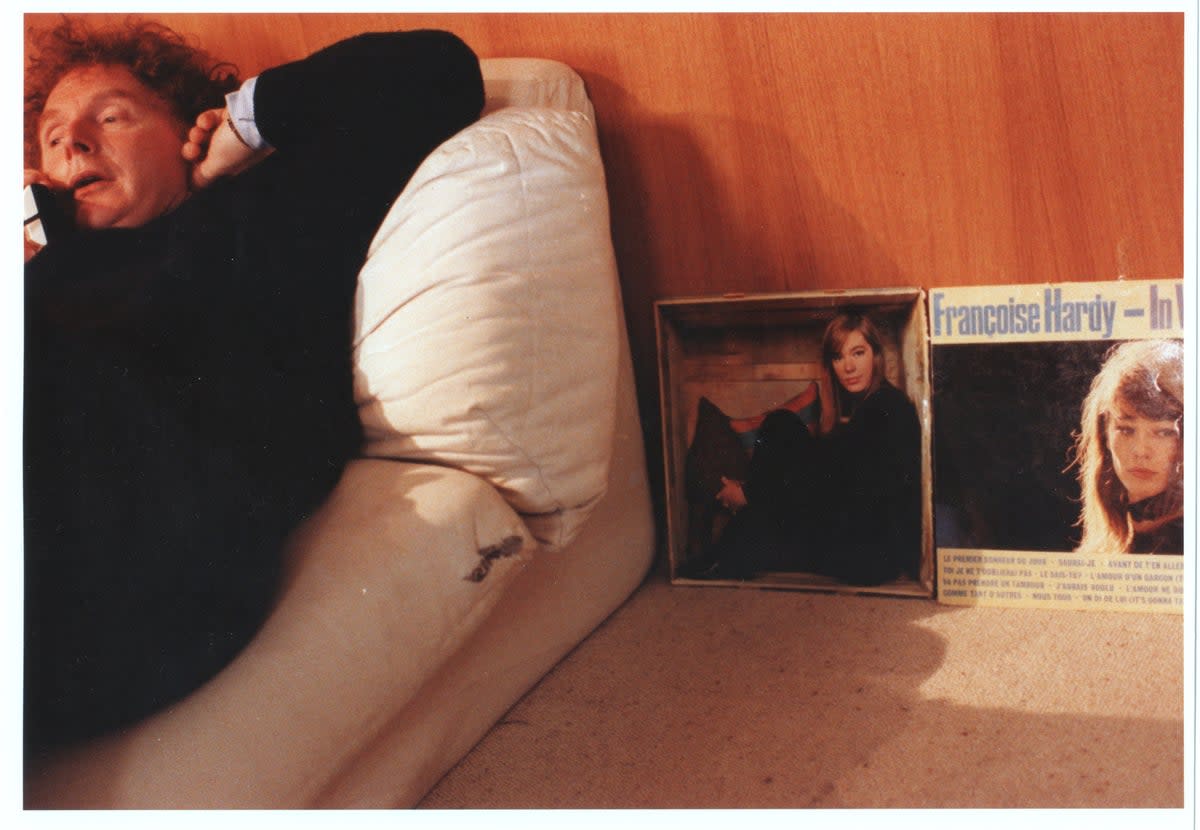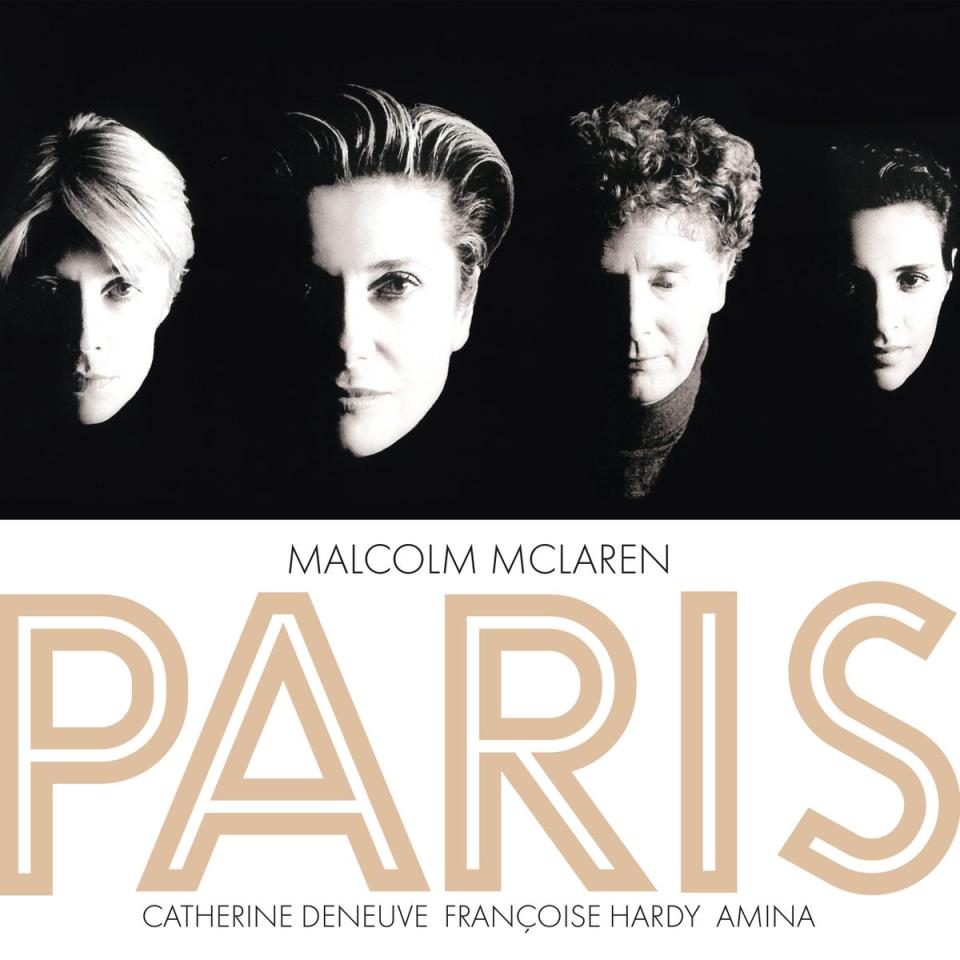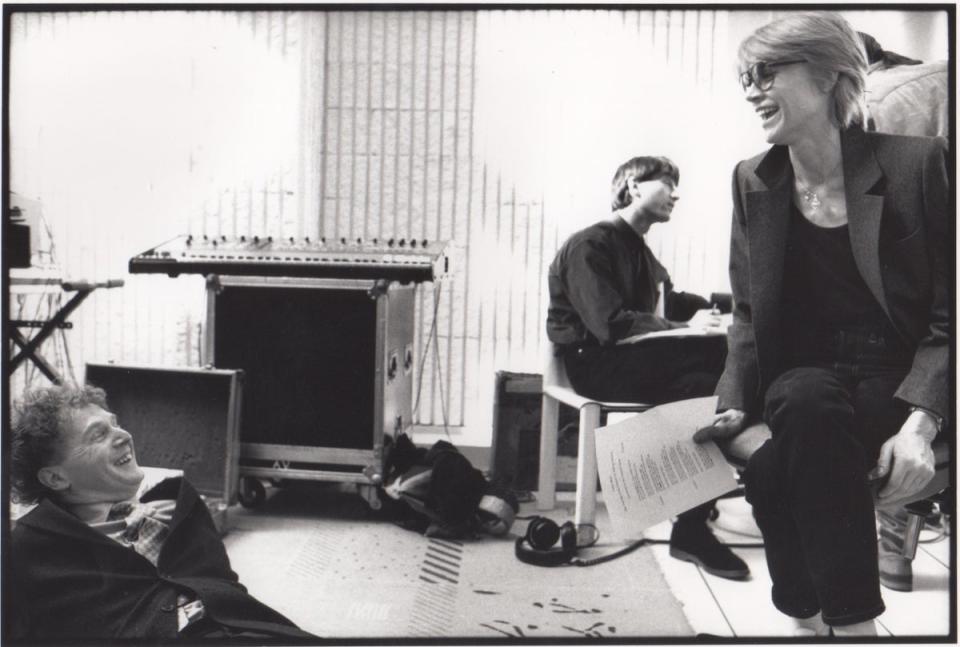Malcolm McLaren’s Paris: re-released 30 years on, this record is still astonishingly romantic

“A thousand kisses say goodbye / And then they say you’ll never die / A lonely fanfare blew / And they sing to you / Bye Bye Bye Bye.”
Thus sings the lovely Françoise Hardy – who sadly died this week – in Revenge of the Flowers on Malcolm McLaren’s astonishingly romantic album, Paris. Now celebrating its 30th anniversary, Sony is re-releasing it for the first time as a double-vinyl album and online to coincide with the Paris Olympics.
This gorgeous record was Malcolm’s love letter to the City of Lights that played such an important role throughout his life – serving both as an inspiration and refuge.
Inspiration from when he was a teenager, listening to Hardy, frequenting the French-themed clubs and cafes in Soho (like Café Macabre, where he sat on a coffin drinking coffee), posing as a Beat and delving into Existentialism as an art student while yearning to join the student riots of ’68 – naturellement!
French Situationism formed the basis of what became punk and in its bloody aftermath, Malcolm fled to Paris to lick his wounds and discovered the sounds of African drums and a new beat, leading to Bow Wow Wow and his first solo album, Duck Rock.
On and on this love affair continued until the end of his life when he created his final work, an artwork he named Paris, Capital of the XXIst Century, an audiovisual collage made from snippets of French ads and music from his Paris album (which samples some of those ads).
When we met (in Paris of course) in 1998, the album was still fresh and as we two flâneurs wended our way through the city, he would explain the bits that played a part in the album and his life.

We often stayed at a hotel off Place St Sulpice where he showed me the Delacroix paintings in the church and explained he’d recorded the peals of the bells for the album – present in Driving Into Delirium, (the dramatic introduction to Revenge of the Flowers) sung by Malcolm.
With nods to Phil Spector and even Hardy’s ye-ye days, the melody of Revenge of the Flowers is matched with decadent lyrics inspired by a Zola tale about the fin de siècle idea of the ultimate erotic suicide – suffocation from flowers.
Suitably, when he went to play the demo at Hardy’s house, he had to light a match to find the stereo – the shutters were permanently drawn and everything was black, including the linen and toilet bowl.
The album itself was produced in a studio just behind Place St. Sulpice, in an elegant hôtel particulier, now owned by François Pinault. And on the Place, is the Café de la Mairie, where Malcolm stalked Catherine Deneuve, who lived nearby, to enlist her participation.
The first time he saw her, he said he sat frozen in his seat. The second time, he drew up enough nerve to rush up to her, and hand her the cassette with the demo. “Voleur! Voleur!” she apparently cried, but after listening to the song, she was convinced, and duetted with Malcolm on the single Paris Paris and its video, filmed by her ex, David Bailey.
At the Café de Flore, he had met the legendary Juliette Greco to propose a song he’d written expressly for her. But her agent shot it down, “How dare you ask the Queen of French chanson to sing in English?”

When he returned to the record company Disques Vogue, the exec was non-plussed, deciding the demo with Malcolm singing was fine. When Malcolm pleaded that the song was written for Greco, a woman, singing about her love affair with Miles Davis, he answered, “So what? No one will understand the English lyrics anyway.”
Though initially we wandered around St Germain mostly, we fanned out over time, covering the other parts of the city referenced in the album.
Paris, in fact, started as a project about multicultural Paris. And so, it also covers the seediness of Pigalles, the red light district, the African street drummers of Barbes, the Arab stronghold of La Goutte d’Or, lilting Rai and Samba beats, Senegalese folk songs and the Tunisian singer, Amina, who sings the delightful, La Main Parisienne.
Threaded through with the ghost of Erik Satie, as the heart of the album, the record embodies all that Malcolm felt for the city, as he sings in the opening track: “Where in the world can you find such dreams?/ Nowhere, it seems except Paris/ Yeah, I always get a kick out of Paris/ But then again, I’m not sure…”

 Yahoo News
Yahoo News 
